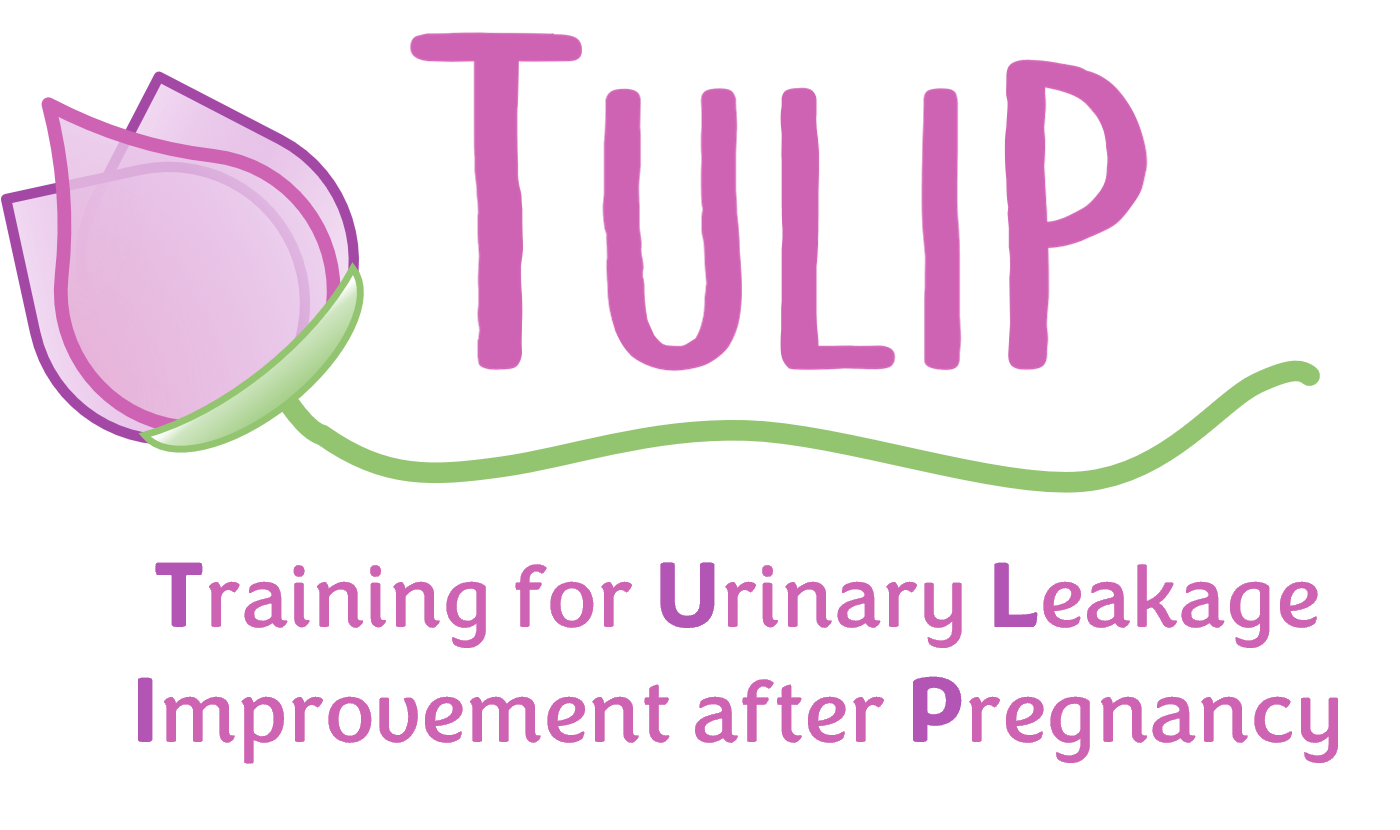
Informational Videos about the TULIP Study and companion study, TULIP-B
Welcome to the home of the PFDN’s TULIP study.
For new mothers, bladder leakage may be upsetting or bothersome. As a TULIP study participant, you will learn strategies for improving bladder control and how your pelvic muscles support your bladder. This study is looking to see how different ways of strengthening these pelvic muscles might improve bladder leakage over 12 months.
The purpose of this research study is to determine the effectiveness of education about lifestyle changes (e.g., being thoughtful about what you eat and drink, exercising, weight loss) and pelvic muscle strengthening in the treatment of bothersome bladder leakage after delivery of your first baby. This education will be with or without additional training in pelvic muscle strengthening, either using in-person exercise coaching (i.e., 2 sessions with a skilled teacher at baseline and 3 months after delivery) or an at-home motion-based device (i.e., a vaginal insert device that communicates wirelessly to an app on your smartphone telling you when correct exercises are being performed).
After the baseline/initial visit, participants return to clinic at 6 and 12 months after delivery for a pelvic exam to recheck pelvic muscle strength and to answer questionnaires about changes in leakage symptoms. Each visit will take about one hour. The group that meets with the in-person exercise coach has one additional session 3 months after delivery that should also take about an hour. Total study duration is until 12 months after your delivery.
The greatest risks of the study include the possibility of pelvic muscle discomfort during the exercise strengthening and loss of confidentiality.
Training for Urinary Leakage Improvement after Pregnancy – Biomarker Study
The TULIP-B “sub-study” is being conducted to study biologic markers present in the vagina or urine that may be associated with the development of bladder leakage. We are inviting participants to join this research study if they have recently delivered their first baby and are at risk for the development of bladder leakage.
The purpose of this research study is to determine if cells from the vaginal tissue show signs of inflammation and aging, and whether the types of bacteria in the vagina are different between women who develop bladder leakage after delivery and those who do not.
TULIP-B study participants will be asked to collect urine in a cup and gather some cells from the vagina using a soft cotton swab. Participants will attend 2 visits with the researchers or study staff and collect samples at home 3 times. These samples will allow the investigators to study biologic markers present in the vagina or urine that may be associated with the development of bladder leakage.
Participants will also be asked to fill out questionnaires about their health and incontinence symptoms from time to time. In addition, at the first visit and again at 6 months after delivery, all participants will have a pelvic exam so that the study doctor or team may check the strength of your pelvic muscles.
There are no benefits to participating in this research. However, we hope the information learned from this study will benefit other women who develop post-partum bladder leakage in the future.
ClinicalTrials.gov
Read more about this study at clinicaltrials.gov.






